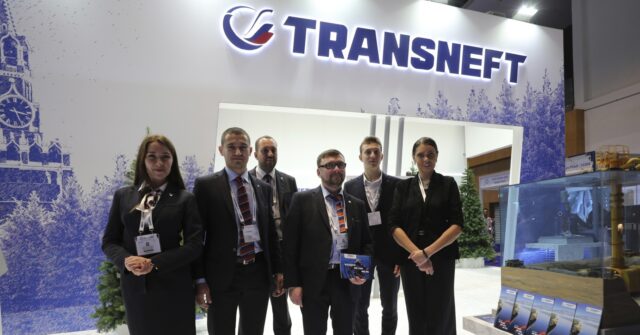Oil deliveries from Russia to the Czech Republic via the Druzhba pipeline resumed after a brief interruption, as confirmed by the state-owned Mero company managing the pipeline network. The halt in delivery had occurred two days prior to the announcement, and the reasons behind it remain unclear. Despite the interruption, Orlen Unipetrol, a key refiner in the Czech Republic, reported that its operations were not adversely affected. The Czech Republic, along with Slovakia and Hungary, is one of the few European Union (EU) member states still receiving Russian oil. This situation contrasts sharply with the rest of the EU, where many countries stopped importing Russian oil following the invasion of Ukraine in 2022, implementing sanctions aimed at penalizing Russia for its aggressive actions.
To bolster energy security and reduce reliance on Russian oil, the Czech Republic has made significant investments in its pipeline infrastructure. Specifically, the country has allocated approximately 1.6 billion Czech koruna, equivalent to about $67 million, to enhance the capacity of the Italian TAL pipeline. This upgrade aims to double the pipeline’s capacity to accommodate eight million metric tons of oil per year. As the TAL pipeline continues through Germany and into Czechia, the enhanced capacity is expected to meet the country’s oil demands independently from Russian sources.
The investment in the TAL pipeline reflects the Czech Republic’s proactive approach to energy diversification and security. The project is anticipated to be fully operational by early 2025, creating a more reliable supply chain for oil imports while diminishing the nation’s dependence on Russian energy. This strategic shift not only aligns with broader EU goals of reducing energy reliance on Russia but also underscores the necessity of developing alternative energy routes following geopolitical tensions that have disrupted existing supply chains.
The ongoing energy crisis in Europe, exacerbated by geopolitical strife, has necessitated a reevaluation of energy sources across the continent. The Czech Republic’s efforts to increase the Italian TAL pipeline’s capacity are part of a larger regional trend among EU nations to seek alternative energy suppliers and routes. This strategic shift is critical for enhancing energy resilience, particularly in light of fluctuating global oil prices and concerns over supply disruptions. By expanding its pipeline capabilities, Czechia aims to not only secure its immediate energy needs but also to position itself better in the evolving landscape of European energy politics.
Moreover, the decision to maintain some oil intake from Russia speaks to the unique circumstances faced by the Czech Republic, Slovakia, and Hungary compared to their EU counterparts. While many nations have opted for complete bans to signal a strong stance against Russia’s actions in Ukraine, these three countries find themselves in a complex position where energy supply logistics and economic considerations also play significant roles in their energy policies. As a result, the continued reliance on Russian oil, albeit justified in the short term, raises questions about long-term energy strategies and commitments to EU sanctions.
In conclusion, the recent resumption of oil deliveries through the Druzhba pipeline highlights both the immediate challenges and the strategic responses of the Czech Republic amidst a shifting energy landscape in Europe. The investments being made in infrastructure, particularly the TAL pipeline upgrade, signify a commitment to enhancing energy security while gradually transitioning away from dependence on Russian oil. As EU nations work to mitigate the effects of geopolitical turmoil on their energy supplies, the Czech Republic’s approach will critically inform the broader energy strategies of the region. The anticipated operationalization of the TAL pipeline in 2025 could serve as a pivotal point for Czechia’s energy future, shaping its role in the European energy market as it seeks to balance economic realities with political imperatives.

